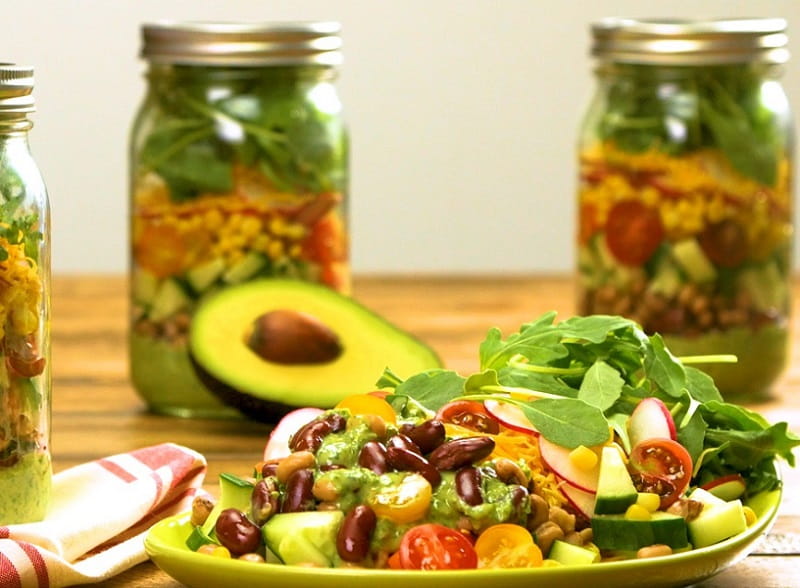A taco salad that's perfect for a Labor Day picnic
By American Heart Association News

Healthy salads needn't be bland or wimpy. A taco salad with avocado-cilantro dressing is zesty, fun and nutritious, especially rolled up into a nostalgic glass container. And it makes for a picnic-friendly dish for Labor Day.
Thanks to ingredients like kidney beans and black-eyed peas, the salad boasts 27 grams of protein and 17 grams of fiber per serving. That's more than half of the daily recommendation for each, based on 2,000 calories per day.
"As a vegetarian, I was pleased to see this recipe, which follows a recommended diet that emphasizes vegetables, fruits and legumes," said Dr. Erin Michos, a cardiologist at Johns Hopkins Medicine in Baltimore. She is a member of the committee that wrote the 2019 prevention guidelines issued by the American College of Cardiology and American Heart Association.
"Beans are a high-fiber food that can help manage blood sugar levels and thus are preferred over many other starchy foods," she said. "They're also a good replacement for meat as a source of protein."
Michos also praised the recipe's mix of a little avocado and a lot of greens. Each serving contains 1 cup of greens – such as romaine lettuce, spinach or arugula – and one-fourth of a medium-size avocado.
"Avocado is extremely healthy, and it has good fats, but it's also high in calories, so you have to eat it in moderation," she said. "Leafy greens fill you up, and they're both healthy and low-calorie, which is one reason why I'm a big fan of salads like this one."
If you have questions or comments about this story, please email editor@heart.org.




